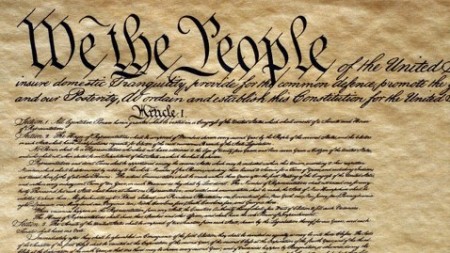
Child Slavery on Chocolate Plantations
Living in a less developed country I hear a lot of general talk about human rights. One of the times this subject normally comes up is when foreigners speak up wanting to do something about the abysmal ways many animals are treated in developing countries (donkeys being abused as working animals, cats and other animals being used for witchcraft purposes, abuse of street animals for amusement–such as cutting off their tails for fun). Surprisingly, locals’ reaction is often, “We shouldn’t care about ANIMAL RIGHTS; we need to care about HUMAN rights!”
When a friend told me they wanted to study international relations and specialize in “human rights,” I realized that I needed to ask, “What ARE ‘human rights,’ exactly?” When I didn’t get a clear answer, I looked it up.

The European Convention on Human Rights
On Wikipedia, I found something called the European Convention on Human Rights (from 1950). It has sections (not a comprehensive list) discussing some of the following:
Respecting Rights
Life
Torture
Servitude
Liberty and Security
Fair Trial
Privacy
Conscience and Religion
Expression
Association
Marriage
Effective Remedy
Discrimination
Abuse of Rights
Reading this list, I realized why we are not talking about “human rights” in America. Many(but not all) items, in lists of human rights, are already in our Declaration of Independence.

The majority of people in America (except immigrants) have never lived in a time or place where the government was authoritarian, and people did not have these rights. Our Declaration of Independence, particularly the Bill of Rights, is designed to protect Americans from any sort of authoritarian government, and thus, protect our rights. Therefore, we are complacent (when compared with those living under authoritarian regimes, especially in the developing world), as these conditions are not within living memory of the majority of our citizens.
In contrast, both the Holocaust and life under authoritarian governments are still within recent living memory of Europeans–and are, in fact, still the current condition of many people in the developing world. The precise definition of abuse of human rights, IS essentially, an authoritarian government.

According to Will Byrnes, in his review of Conservatives without Conscience, “Robert Vaughn, a professor at American University’s Washington College of Law, defines democracy and authoritarianism in terms of information policy. ‘Authoritarian governments are identified by ready government access to information about the activities of its citizens and by extensive limitations on the ability of citizens to obtain information about the government. In contrast, democratic governments are marked by significant restrictions on the ability of government to acquire information about its citizens and by ready access by citizens to information about the activities of government.'”
In America, we speak a lot about “individual rights,” (meaning “civil rights”). Civil rights and human rights are not quite the same thing.
Civil rights are an agreement between a given nation and an individual; therefore, civil rights vary with each country according to their constitution. Civil rights result from a “legal granting of that right.” Civil rights protect citizens from discrimination based on certain categories; as well as due process, or free speech, among others.
Human rights were conceived after World War II (in reaction to the Nazi treatment of the Jews and other groups). An individual is considered to have these rights just for being human; these rights are not considered to be different between one country and another.

A second reason Americans aren’t usually speaking about human rights, and why America has not ratified the European Convention on Human Rights, is that our government doesn’t agree with all provisions. While there are a number of things, one example the United States disagrees with is that the convention outlaws the death penalty for all crimes, no matter how heinous.
From researching these issues, the next time a friend in a developing country begins speaking to me about human rights, I’ll certainly have a better understanding of why they are speaking about it so passionately.
Tags: Americans are complacent, Animal rights, authoritarian governments, Bill of Rights, Burma, Child slavery, civil rights, Conservatives vs. Liberals, democratic governments, difference between civil rights and human rights, European Convention on Human Rights, Holocaust, human rights, Issues in Africa, Myanmar, North Korea, Rober Vaughn professor at American University's Washington College of Law, why the United States has not ratified the European Convention on Human Rights, Will Byrnes and his review on Conservatives without Conscience
May 21, 2016 at 4:01 am |
America seems to believe in human rights for it’s citizens but scarce thought is given to the human rights of people in other countries. Are they not human too? This is what makes Trump’s trumpeting of increasing torture by the military more than obnoxious, it makes him an imminent diplomatic disaster.
LikeLiked by 1 person
May 21, 2016 at 3:05 pm |
Yes, Luke, I think you’ve precisely hit the nail on the head with your comment. I think America was highly respected prior to the opening of Guantanamo. This and the Abu Graib scandal completely destroyed America’s human rights / civil rights credibility overseas for a full generation. Trump’s comments are more of the same. Thank you for reading and commenting.
LikeLike
May 23, 2016 at 3:24 pm |
Specifically, “human rights” were recognized in the Universal Declaration of Human Rights, made concrete and enforceable in subsequent covenants. The USA, generically, has a history of strong disinclination towards participating in such treaties. An extreme fear of loss of sovereignty is the usual stated excuse, often acting as a fig leaf for affected business interests.
LikeLike
May 23, 2016 at 6:36 pm |
Yes, it’s true. However, most Americans don’t realize that what the government does overseas is not what it does it home.
LikeLike
June 21, 2016 at 1:57 am |
You have pictured the Constitution, not The Declaration of Independence, dear. Also, The Bill of Rights is part of the Constitution, and not The Declaration of Independence.
LikeLike
September 2, 2018 at 4:39 am |
Recent immigrants are by no means the only marginalized group in the US, although our citizens have become more aware of this in recent times. North American indigenous or First Nations peoples know what it is like to live under authoritarian rule on our continent, and less-recent immigrants seem to have amnesia about their privilege and how it protects and reinforces their power over our original peoples. It’s interesting to me that you point to the US Declaration of Independence as a source of our rights “granted” when it’s lofty ideals degenerate into a rant against the “savage” Indians (the context being: the Colony’s losses from pitting tribes against each other in the War of 1812 against Brittain). The US Declaration spelled out their complaints against the colonial British government while asserting a culture of individualism, but it doesn’t spell out solutions beyond rebellion. The US took on the mantle of Colonizer while benefiting from treaties with tribes by, among other things, gaining Indian recognition of US sovereignty. The authors of the US Declaration seemingly resolved some of this contradiction in Article Six of the US Constitution and the Commerce Clause, as well as the Bill of Rights and following Amendments.
Then Congress, having granted itself Plenary Power, decided unilaterally that US treaty-making with Indian nations was to be abolished, having created the equivalent of Jim Crow laws for this “race”– the body known as “Indian Law” (sic). Since then, having given up the illusion of “inaliable” or intrinsic rights, further social contracts developed in the Eurocentric post-atomic age of International law, such as the Universal Declaration of Human Rights. More current development of the Universal Declaration of Rights for Indigenous Peoples is an excellent study of how the US maintains it’s authoritative grip of self-serving interest (privilege) over tribal peoples here. It’s no coincidence that the three countries that held out signing it are the three “first world” nation-states with the largest indigenous populations: Canada, the US and Australia. It’s also no accident that Pres. Obama, while endorsing UNDRIP publicly, never actually signed this covenant.
Incidentally, it was by searching “how to cope with passive-aggressive behavior in institutions” that I came upon your blog entry on Arab culture vs. others. I see many of the traits attributed to Arab societies within our dominant US culture and governments. A bit more introspection will reveal the same for others.
LikeLike
September 2, 2018 at 6:58 am |
Well these are some very interesting comments. I’m afraid you know much more about all this than I do, but you’ve given me plenty to think about, and to direct some of my future writing. Thank you for taking the time to write all this.
LikeLike